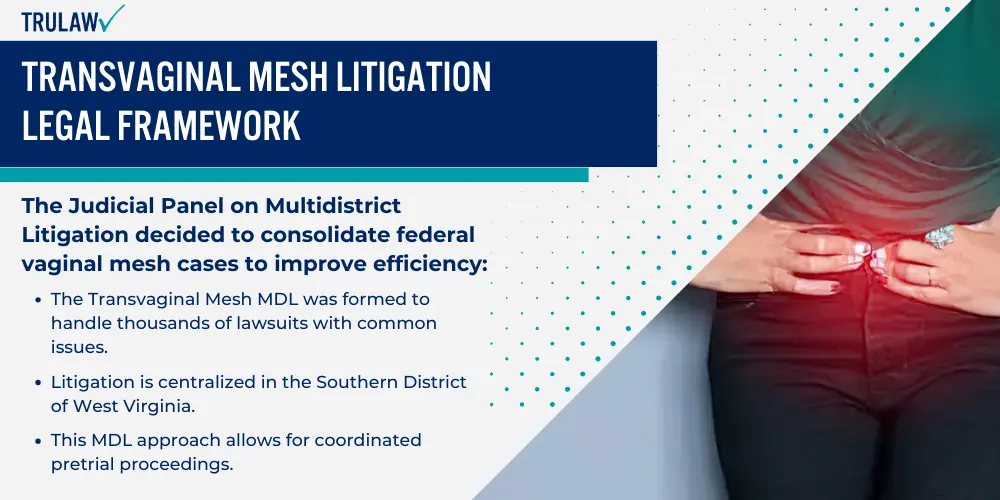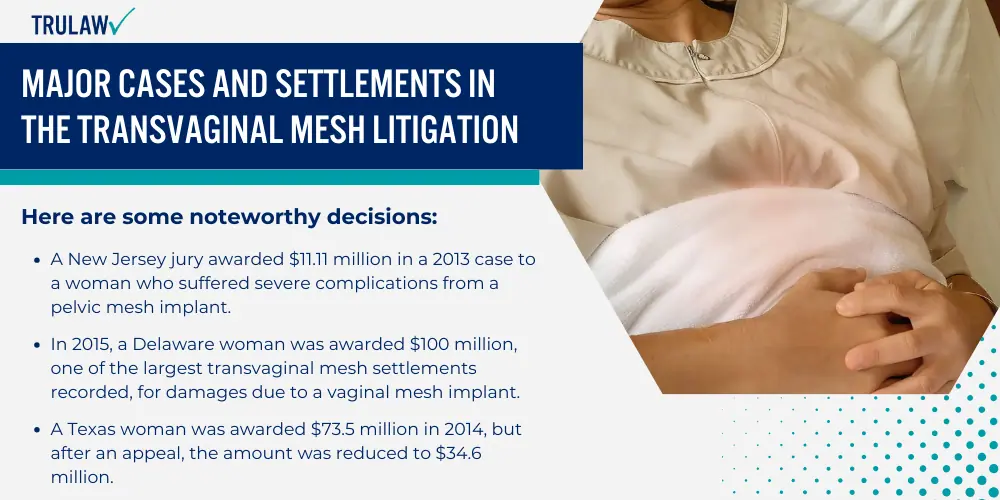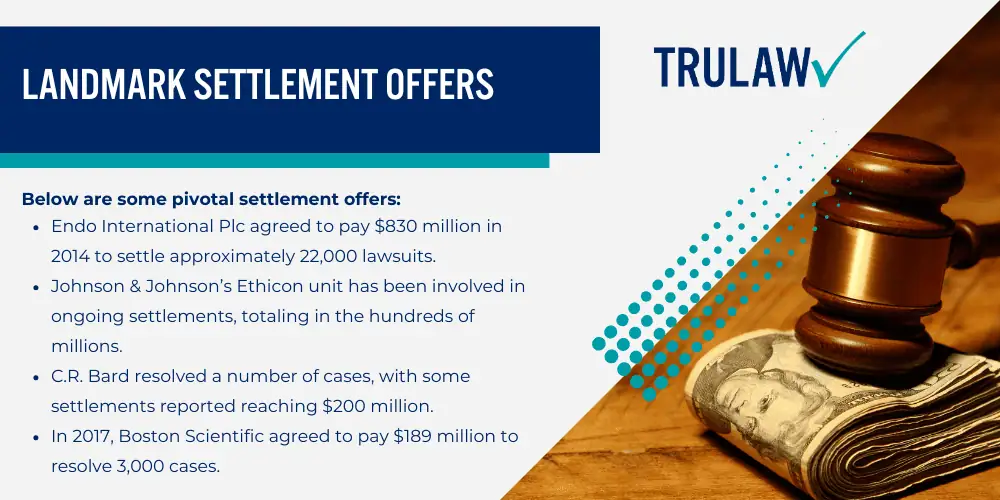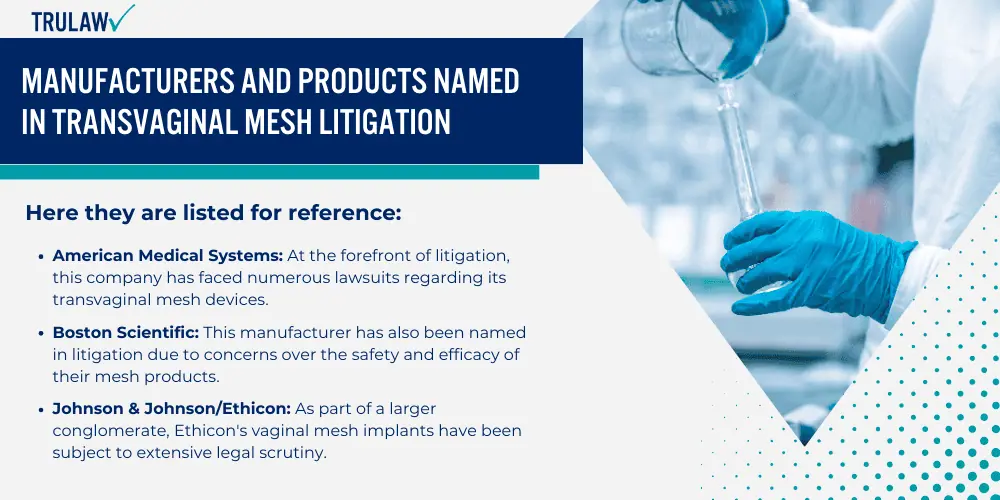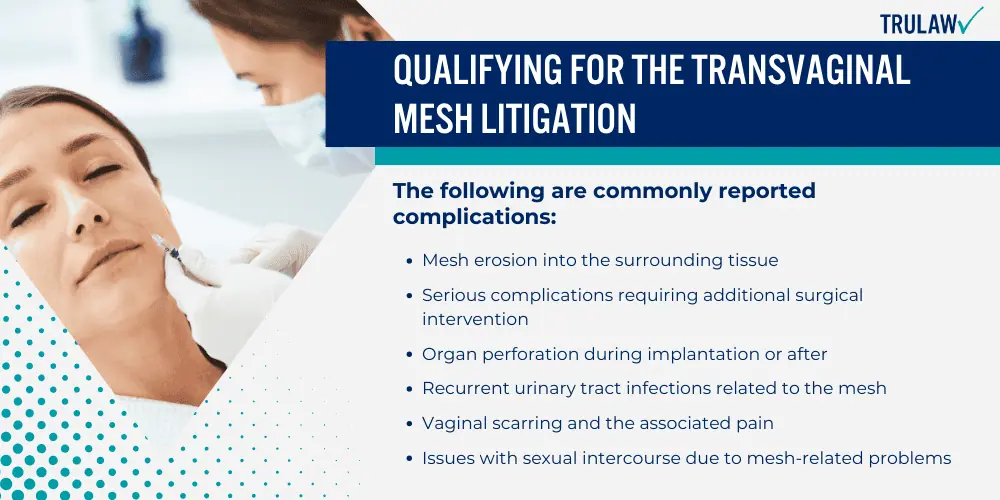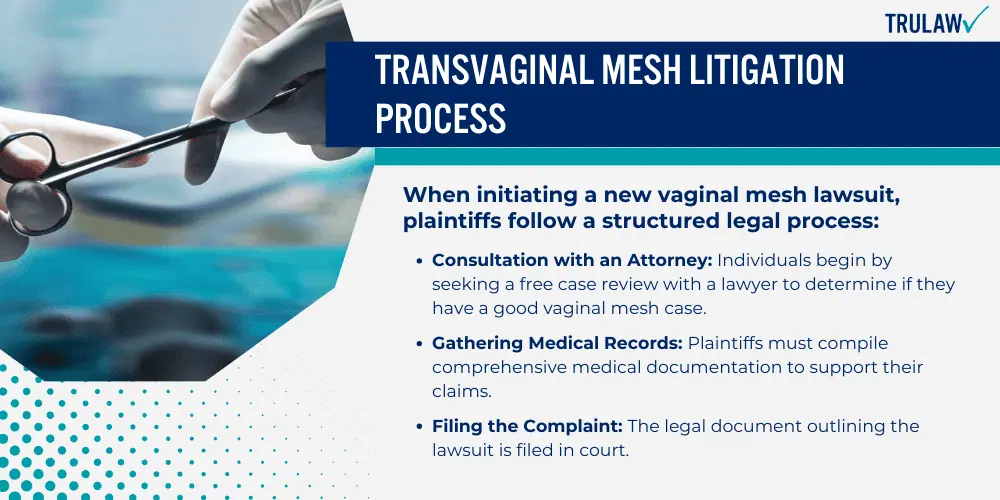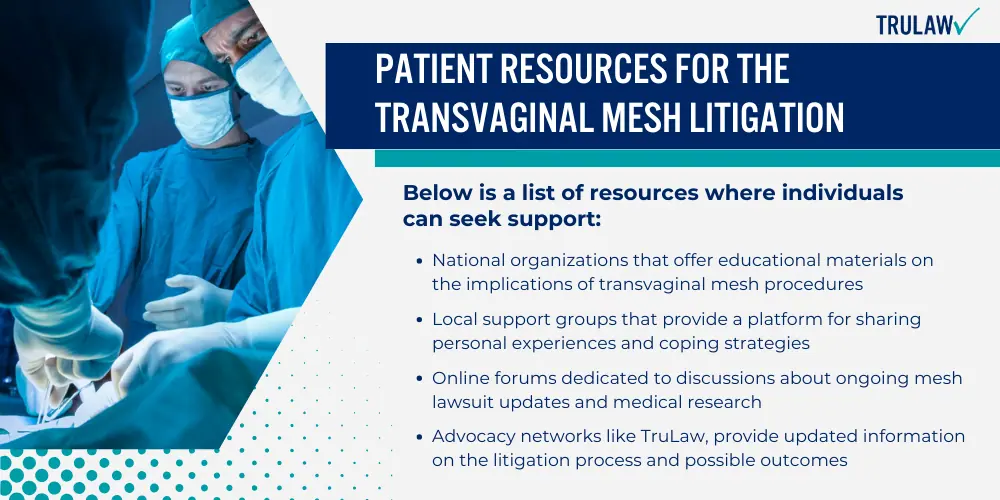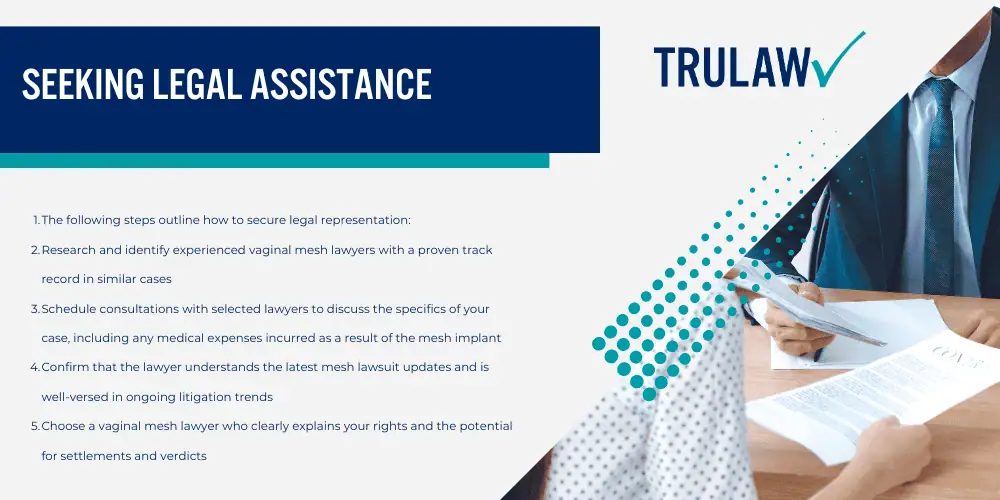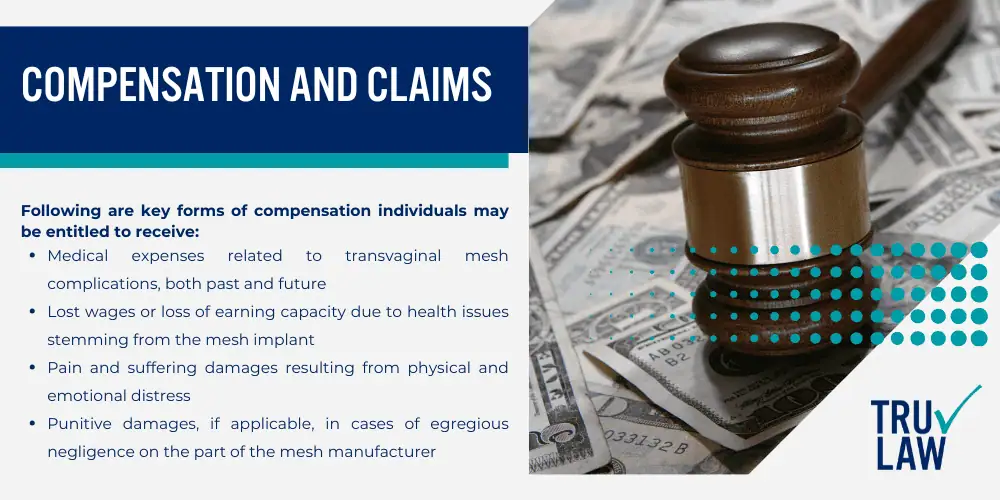The FDA has issued various recommendations and warnings with regard to transvaginal mesh devices as a response to the complications associated with them.
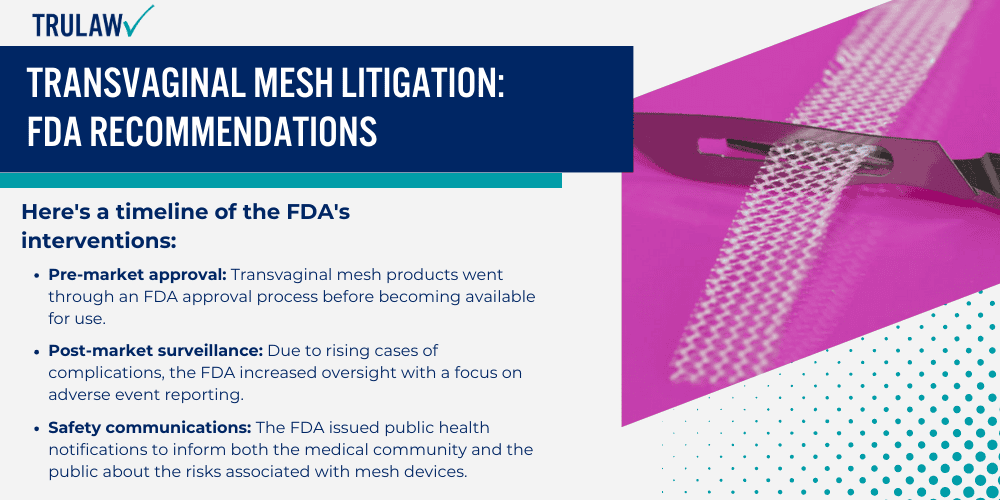
This section explores the nuances of FDA actions and the medical context of these devices.
FDA Approvals and Warnings
The Food and Drug Administration (FDA) regulates medical devices, including transvaginal mesh devices.
In light of safety concerns, the FDA has been actively involved in the scrutiny of these devices over the past years.
Here’s a timeline of the FDA’s interventions:
- Pre-market approval: Transvaginal mesh products went through an FDA approval process before becoming available for use.
- Post-market surveillance: Due to rising cases of complications, the FDA increased oversight with a focus on adverse event reporting.
- Safety communications: The FDA issued public health notifications to inform both the medical community and the public about the risks associated with mesh devices.
- Mandatory reporting: The FDA emphasized the need for mandatory reporting of mesh-related complications by manufacturers.
- Litigation response: In response to litigation, the FDA has taken steps to assess the legal framework governing the use of transvaginal mesh.
- Recommendations: Based on its findings, the FDA has released recommendations aimed at protecting patient health and safety.
Medical Uses
Transvaginal mesh devices have been utilized for various medical purposes, each backed by clinical judgment and patients’ needs.
Below are the primary medical applications of these devices:
- Pelvic organ prolapse (POP): Mesh devices are commonly used to provide support for weakened or damaged tissue in pelvic organ prolapse.
- Stress urinary incontinence (SUI): Another use of mesh is for the treatment of stress urinary incontinence, where stress on the bladder leads to unintentional urine leakage.
- Surgical repair: Mesh is employed to reinforce the vaginal wall during surgery for pelvic organ prolapse repair.
- Strengthening support: The mesh can also serve as a long-term solution to strengthen the pelvic floor when non-surgical options are inadequate.
The FDA’s recommendations and regulatory actions regarding transvaginal mesh devices are significant because they impact legal proceedings and clinical practices involving these medical products.

